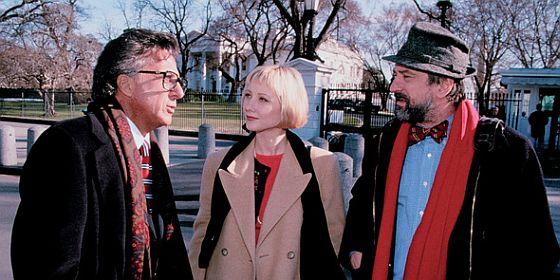It’s not unusual to come across a report in the New York Times that reeks of government oversight — a report that should have some kind of reader health warning such as: “The U.S. government approves this message.”
For instance, on Saturday under the headline, “Other Agencies Clamor for Data N.S.A. Compiles,” Eric Lichtblau and Michael S Schmidt reported:
The National Security Agency’s dominant role as the nation’s spy warehouse has spurred frequent tensions and turf fights with other federal intelligence agencies that want to use its surveillance tools for their own investigations, officials say.
Agencies working to curb drug trafficking, cyberattacks, money laundering, counterfeiting and even copyright infringement complain that their attempts to exploit the security agency’s vast resources have often been turned down because their own investigations are not considered a high enough priority, current and former government officials say.
Intelligence officials say they have been careful to limit the use of the security agency’s troves of data and eavesdropping spyware for fear they could be misused in ways that violate Americans’ privacy rights.
This is clearly such a self-serving narrative for the NSA, one has to wonder: who initiated the report? The New York Times or the NSA?
My first response when reading this was to simply think: spare me the bullshit about the choir boys who run the NSA.
Rather than post a clip here and bother explaining why it stank, it seemed better ignored.
But then an exclusive report from Reuters appeared — a report revealing that in blatant disregard for the United States Constitution, the NSA does indeed provide law enforcement agencies with intelligence intercepts.
That the Reuters report would come out within hours of the New York Times report could be a stunning coincidence, but if you believe that you probably also believe that NSA chief Keith Alexander and DNI James Clapper would never lie.
That government officials spoon-feed stories to press stenographers is not exactly news. However, the “coincidence” of these two reports does suggest an additional and more disturbing explanation about how the NSA is able to play the media: through surveillance of journalists as they are gathering information for news reports.
Why would the NSA not regard reporting about the NSA as raising national security concerns? Indeed, what better way could there be of tracking down leakers than by keeping a close eye on the relatively small number of journalists who are likely to be contacted by any would-be whistle-blower?
When trust has already been broken, it’s no good for presidents or other government officials to reassure the public that the NSA would not spy on journalists. Good faith has already been fully spent. The only way of repairing the damage is through utter transparency.
Reuters reports: A secretive U.S. Drug Enforcement Administration unit is funneling information from intelligence intercepts, wiretaps, informants and a massive database of telephone records to authorities across the nation to help them launch criminal investigations of Americans.
Although these cases rarely involve national security issues, documents reviewed by Reuters show that law enforcement agents have been directed to conceal how such investigations truly begin – not only from defense lawyers but also sometimes from prosecutors and judges.
The undated documents show that federal agents are trained to “recreate” the investigative trail to effectively cover up where the information originated, a practice that some experts say violates a defendant’s Constitutional right to a fair trial. If defendants don’t know how an investigation began, they cannot know to ask to review potential sources of exculpatory evidence – information that could reveal entrapment, mistakes or biased witnesses.
“I have never heard of anything like this at all,” said Nancy Gertner, a Harvard Law School professor who served as a federal judge from 1994 to 2011. Gertner and other legal experts said the program sounds more troubling than recent disclosures that the National Security Agency has been collecting domestic phone records. The NSA effort is geared toward stopping terrorists; the DEA program targets common criminals, primarily drug dealers.
“It is one thing to create special rules for national security,” Gertner said. “Ordinary crime is entirely different. It sounds like they are phonying up investigations.”
The unit of the DEA that distributes the information is called the Special Operations Division, or SOD. Two dozen partner agencies comprise the unit, including the FBI, CIA, NSA, Internal Revenue Service and the Department of Homeland Security. It was created in 1994 to combat Latin American drug cartels and has grown from several dozen employees to several hundred.
Today, much of the SOD’s work is classified, and officials asked that its precise location in Virginia not be revealed. The documents reviewed by Reuters are marked “Law Enforcement Sensitive,” a government categorization that is meant to keep them confidential.
“Remember that the utilization of SOD cannot be revealed or discussed in any investigative function,” a document presented to agents reads. The document specifically directs agents to omit the SOD’s involvement from investigative reports, affidavits, discussions with prosecutors and courtroom testimony. Agents are instructed to then use “normal investigative techniques to recreate the information provided by SOD.”
A spokesman with the Department of Justice, which oversees the DEA, declined to comment.
But two senior DEA officials defended the program, and said trying to “recreate” an investigative trail is not only legal but a technique that is used almost daily.
A former federal agent in the northeastern United States who received such tips from SOD described the process. “You’d be told only, ‘Be at a certain truck stop at a certain time and look for a certain vehicle.’ And so we’d alert the state police to find an excuse to stop that vehicle, and then have a drug dog search it,” the agent said.
After an arrest was made, agents then pretended that their investigation began with the traffic stop, not with the SOD tip, the former agent said. The training document reviewed by Reuters refers to this process as “parallel construction.”
The two senior DEA officials, who spoke on behalf of the agency but only on condition of anonymity, said the process is kept secret to protect sources and investigative methods. “Parallel construction is a law enforcement technique we use every day,” one official said. “It’s decades old, a bedrock concept.”
A dozen current or former federal agents interviewed by Reuters confirmed they had used parallel construction during their careers. Most defended the practice; some said they understood why those outside law enforcement might be concerned.
“It’s just like laundering money – you work it backwards to make it clean,” said Finn Selander, a DEA agent from 1991 to 2008 and now a member of a group called Law Enforcement Against Prohibition, which advocates legalizing and regulating narcotics.
Some defense lawyers and former prosecutors said that using “parallel construction” may be legal to establish probable cause for an arrest. But they said employing the practice as a means of disguising how an investigation began may violate pretrial discovery rules by burying evidence that could prove useful to criminal defendants.
“That’s outrageous,” said Tampa attorney James Felman, a vice chairman of the criminal justice section of the American Bar Association. “It strikes me as indefensible.”
Lawrence Lustberg, a New Jersey defense lawyer, said any systematic government effort to conceal the circumstances under which cases begin “would not only be alarming but pretty blatantly unconstitutional.”
Lustberg and others said the government’s use of the SOD program skirts established court procedures by which judges privately examine sensitive information, such as an informant’s identity or classified evidence, to determine whether the information is relevant to the defense.
“You can’t game the system,” said former federal prosecutor Henry E. Hockeimer Jr. “You can’t create this subterfuge. These are drug crimes, not national security cases. If you don’t draw the line here, where do you draw it?”
Some lawyers say there can be legitimate reasons for not revealing sources. Robert Spelke, a former prosecutor who spent seven years as a senior DEA lawyer, said some sources are classified. But he also said there are few reasons why unclassified evidence should be concealed at trial.
“It’s a balancing act, and they’ve doing it this way for years,” Spelke said. “Do I think it’s a good way to do it? No, because now that I’m a defense lawyer, I see how difficult it is to challenge.”
One current federal prosecutor learned how agents were using SOD tips after a drug agent misled him, the prosecutor told Reuters. In a Florida drug case he was handling, the prosecutor said, a DEA agent told him the investigation of a U.S. citizen began with a tip from an informant. When the prosecutor pressed for more information, he said, a DEA supervisor intervened and revealed that the tip had actually come through the SOD and from an NSA intercept. [Continue reading…]





